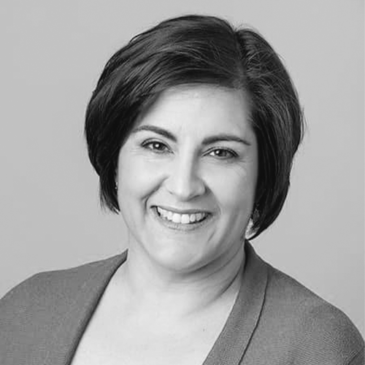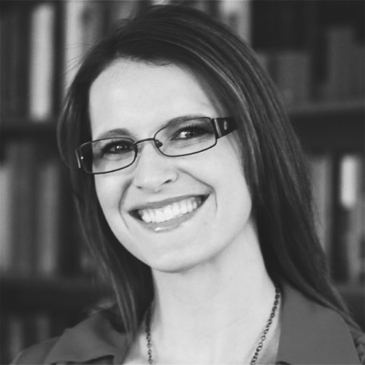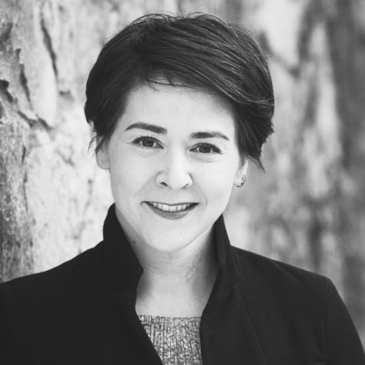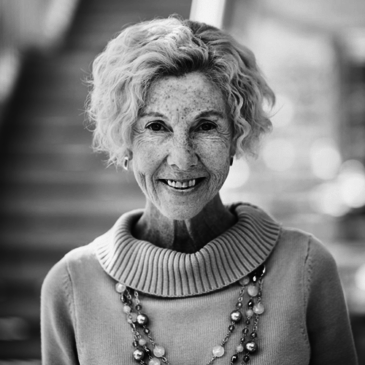Diane Burton is a professor in the ILR School at Cornell University. Her primary appointment is in human resource studies, with courtesy appointments in organizational behavior and sociology. Prior to joining the Cornell faculty in 2009, Professor Burton was a faculty member at the MIT Sloan School of Management. She began her academic career at the Harvard Business School teaching leadership and organizational behavior. Professor Burton earned her Ph.D. in sociology at Stanford University and served as a lecturer and researcher in organizational behavior and human resources management at the Stanford Graduate School of Business.

Human Resources EssentialsCornell Certificate Program
Overview and Courses
Human resources is a broad topic that touches on many facets of an organization, but there are some core concepts that all HR practitioners should know. This certificate in Human Resources Essentials will discuss those concepts and give you the set of skills you need to get started. Whether you are new to HR, perform the HR function in addition to other roles, or need to have an understanding of the HR role, this certificate will give you a strong foundation to make a difference in your organization. Equipping you to hire the right team, communicate effectively, and handle any workplace issues, this series is essential for anyone touching the HR role.
This program includes a year of free access to Symposiums! These events feature a week of live, highly participatory virtual Zoom sessions with Cornell faculty and experts to explore today’s most pressing diversity and inclusion topics, including equity, unconscious bias, psychological safety, inclusive leadership, and cross-cultural conversations. Symposium events are held several times throughout the year. Once enrolled in your program, you will receive information about upcoming events.
Throughout the year, you may participate in as many sessions as you wish. Attending Symposium sessions is not required to successfully complete the certificate program.
For the best experience in this program it is recommended to take these courses in the order that they appear.
Course list
The course will also help you understand why “Diversity” is now often referred to as “Diversity & Inclusion” by explaining what inclusion is and how it differs from diversity. Why is inclusion so important, and what are its building blocks?
A leader's listening ability has a tremendous impact on their effectiveness. Professor Judi Brownell's HURIER model of listening provides a comprehensive method of listening improvement. In this course, you will assess your listening skills, set personal goals, and plan a development strategy. The application of listening principles to Servant Leadership and the development of emotional intelligence are emphasized.
You will use the HURIER self-assessment instrument to assess your personal listening skills then solicit feedback from your colleagues to compare your self-assessment results to their perceptions. You will then reflect on the results and create a SMART — specific, measurable, attainable, relevant, time-bound — listening goal. As you move forward in the course, you will take on the role of a Servant Leader and determine how to facilitate a listening environment. You will observe and analyze a team and create an action plan to recommend improvements to the listening environment. Finally, you will examine three emerging issues that impact listening in the workplace and the larger social environment: diversity, ethics, and technology. After taking this course, you will be prepared to foster a strong listening environment within your organization and set clear goals for your continued skill development.
Instead of HR professionals, front-line managers are now being asked to assess their personnel needs in the workplace and make hiring —or firing—choices that fit those needs. Many managers have not been trained on how to decide among candidates to make the best choices to fit their team. These choices are not just about creating test questions or reading resumes, but also about managing the interpersonal communication that must occur between hirer and candidate.
Cornell University's Professor Livingston's teaching combines well-supported theoretical evidence with real-world examples and case studies to make the subject matter both understandable and easily applicable to a wide variety of managing environments. She focuses not just on the “how” of hiring and interviewing, but on the “why” so that individual managers and decision makers can be flexible and agile in changing environments and with changing needs.
Managers must foster a good workplace atmosphere and be able to deal effectively with behavior issues as they arise. Doing so improves productivity and employee engagement and helps an organization avoid costly legal liability.
Dean Alexander Colvin, Ph.D. of Cornell University's ILR School explains how new and aspiring managers can prevent or reduce the occurrence of behavior issues. His lessons will show you how to assess issues as they arise and provide guidance and best practices on resolving behavior problems, primarily through the proven principles of progressive discipline. Professor Colvin draws on his legal and research credentials to provide guidance in dealing with harassment and bullying, planning and carrying out dismissals when required, and managing requests to accommodate special employee needs and practices.
Throughout the course, you'll remain engaged as you participate in interactive discussions and complete a five-part course project, applying the key concepts to your own situation.
Symposium sessions feature three days of live, highly interactive virtual Zoom sessions that will explore today’s most pressing topics. The Leadership Symposium offers you a unique opportunity to engage in real-time conversations with peers and experts from the Cornell community and beyond. Using the context of your own experiences, you will take part in reflections and small-group discussions to build on the skills and knowledge you have gained from your courses.
Join us for the next Symposium in which we’ll discuss the ways that leaders across industries have continued engaging their teams over the past two years while pivoting in strategic ways. You will support your coursework by applying your knowledge and experiences to relevant topics for leaders. Throughout this Symposium, you will examine different areas of leadership, including innovation, strategy, and engagement. By participating in relevant and engaging discussions, you will discover a variety of perspectives and build connections with your fellow participants from various industries.
Upcoming Symposium: June 4-6, 2024 from 11am – 1pm ET
All sessions are held on Zoom.
Future dates are subject to change. You may participate in as many sessions as you wish. Attending Symposium sessions is not required to successfully complete any certificate program. Once enrolled in your courses, you will receive information about upcoming events. Accessibility accommodations will be available upon request.
Symposium sessions feature three days of live, highly interactive virtual Zoom sessions to explore today’s most pressing topics. The Diversity, Equity, and Inclusion Symposium offers you a unique opportunity to engage in real-time conversations with peers and experts from the Cornell community and beyond. Using the context of your own experiences, you will take part in reflections and small-group discussions to build on the skills and knowledge you have gained from your courses.
Join us for the next Symposium! From the workplace to our homes, discussions about diversity and inclusion are necessary to become aware of our biases and promote action and change. Throughout this Symposium, you will examine and dissect key diversity and inclusion topics like psychological safety, belonging, and equity. By participating in dynamic and relevant dialogues, you will discover a variety of perspectives and create genuine connections with participants from diverse industries and backgrounds.
Upcoming Symposium: May 15-17, 2024 11AM – 1PM ET
- Wednesday 5/15/24 11:00 am – 1:00 pm ET
- Fostering a Climate of Belonging
- Thursday 5/16/24 11:00 am – 1:00 pm ET
- Setting Standards for Inclusive Behavior
- Friday 5/17/24 11:00 am – 1:00 pm ET
- Exploring Equity
All sessions are held on Zoom.
You may participate in as many sessions as you wish. Attending Symposium sessions is not required to successfully complete the certificate program. Once enrolled in your courses, you will receive information about upcoming events. Accessibility accommodations will be available upon request.
How It Works
- View slide #1
- View slide #2
- View slide #3
- View slide #4
- View slide #5
- View slide #6
- View slide #7
- View slide #8
- View slide #9
Faculty Authors
Alexander Colvin, Ph.D., ’99, is the Kenneth F. Kahn ’69 Dean and the Martin F. Scheinman ’75, M.S. ’76, Professor of Conflict Resolution at Cornell University’s ILR School.
Dean Colvin’s research and teaching focuses on employment dispute resolution, with a particular emphasis on procedures in non-union workplaces and the impact of the legal environment on organizations. His current research projects include empirical investigations of employment arbitration and cross-national analysis of labor law and dispute resolution. Dean Colvin is the co-author of “An Introduction to U.S. Collective Bargaining and Labor Relations” (with T. Kochan and H. Katz) and of “Arbitration Law “( with K. Stone and R. Bales).
Dean Colvin received his J.D. in 1992 from the University of Toronto and his Ph.D. in 1999 from Cornell University. He received the 2003 Outstanding Young Scholar Award from the Industrial Relations Research Association (IRRA) and the 2000 Best Dissertation Award from the IRRA for his dissertation entitled “Citizens and Citadels: Dispute Resolution and the Governance of Employment Relations.” Before joining the faculty of the ILR School, Dean Colvin taught at Penn State University from 1999 to 2008.
John Hausknecht is a Professor of Human Resource Studies at Cornell University. He earned his Ph.D. in 2003 from Penn State University with a major in industrial/organizational psychology and minor in management. He received the 2004 S. Rains Wallace Award for the best dissertation in the field of industrial/organizational psychology. Professor Hausknecht’s research primarily falls within the domain of staffing and has appeared in the Academy of Management Journal, Journal of Applied Psychology, and Personnel Psychology. Recent papers have examined applicant persistence in selection settings, reactions to company hiring practices, and predictors and consequences of collective-level absenteeism and turnover. He currently serves on the editorial boards of the Academy of Management Journal, Journal of Applied Psychology, and Personnel Psychology.
Professor Hausknecht teaches undergraduate and graduate-level courses on human resource management, staffing organizations, and HR analytics. He received the ILR School’s MacIntyre Award for exemplary teaching in 2008. Prior to academia, he worked as a consultant to Fortune 500 firms in the areas of leadership assessment, talent management, and organizational change. Professor Hausknecht is a member of the Academy of Management, American Psychological Association, Society for Industrial and Organizational Psychology, and Society for Human Resource Management.
I am an assistant professor in Human Resource Studies, with teaching interests in HR and Staffing, and research interests in gender, stereotyping, and the management of work and family. Originally from Kentucky, I began my education at big state schools in the south before joining the faculty in ILR. The college’s appreciation of combining the world of work with social science research and practice is a perfect place to grow rewarding relationships with faculty, practitioners, and students alike.
I am married with a preschool-aged daughter, a golden retriever, and two cats. In my spare time, I enjoy CrossFit, watching basketball, reading (primarily novels of a non-academic bent), and participating in the Ithaca community.
Lisa Nishii joined the faculty of the Human Resource Studies department at the ILR School, Cornell University after receiving her Ph.D. and M.A. in Organizational Psychology from the University of Maryland, and a B.A in economics from Wellesley College.
Nishii is an expert on inclusion in organizations. Her research focuses on the confluence of organizational practices, leadership behaviors, and climate for inclusion on individual- and group-level outcomes. Using multi-level and multi-method research designs across a number of large-scale federally funded projects, she has found that leaders play an important role in shaping inclusion. In particular, the extent to which leaders role model inclusive behaviors, clarify the learning and innovation benefits of diversity for the group’s work, and set strong norms related to interpersonal interactions, determines the inclusiveness of their workgroup climates. In turn, workgroup climate has important implications for the authenticity of the relationship that group members develop, the positive versus negative quality of relational ties, the information that is shared among group members, the extent of conflict that is experienced, and ultimately the creativity, financial performance, and turnover rates associated with these groups. Workgroup climate also impacts individual-level experiences of discrimination versus inclusion, as well as engagement and performance. She is currently developing and testing the effectiveness of training interventions for leaders as well as for in-tact teams on how to cultivate workgroup inclusion. Nishii’s earlier research focused primarily on diversity in individual-level cognition and behavior as determined by national culture.
Nishii actively publishes in top-tier journals, including the Academy of Management Review, Academy of Management Journal, Journal of Applied Psychology, Personnel Psychology, and Science, and serves on the editorial boards for AMR, AMJ, and JAP. She is currently the Chair of the Academy of Management’s Gender and Diversity in Organizations Division, and the Chair of the ILR School’s International Programs. She serves on a variety of college and university-level councils for diversity, globalization, and engaged learning. Nishii also consults with multinational companies, primarily related to diversity and inclusion and organizational assessment.
Judi Brownell is Professor Emeritus at the Nolan School of Hotel Administration, Cornell University, where she has served as Dean of Students, Associate Dean of Academic Affairs, and Director of Graduate Studies. Dr. Brownell teaches graduate and undergraduate courses in listening, leadership, communication, and organizational behavior, and her online programs are taken worldwide. Her current research interests include identifying key competencies associated with leadership effectiveness, managerial listening behavior, and enhancing service quality.
Dr. Brownell has published nearly 100 articles in professional journals and written numerous other publications. Her textbooks include “The Listening Advantage”; “Organizational Behavior for the Hospitality Industry” (with Florence Berger); “Organizational Communication and Behavior” (with Allan Frank); and “Listening: Attitudes, Principles, and Skills,” now in its seventh edition. A past president of the International Listening Association and the recipient of listening research awards, Dr. Brownell has been inducted into the International Listening Association’s Hall of Fame.

Diane Burton is a professor in the ILR School at Cornell University. Her primary appointment is in human resource studies, with courtesy appointments in organizational behavior and sociology. Prior to joining the Cornell faculty in 2009, Professor Burton was a faculty member at the MIT Sloan School of Management. She began her academic career at the Harvard Business School teaching leadership and organizational behavior. Professor Burton earned her Ph.D. in sociology at Stanford University and served as a lecturer and researcher in organizational behavior and human resources management at the Stanford Graduate School of Business.

Alexander Colvin, Ph.D., ’99, is the Kenneth F. Kahn ’69 Dean and the Martin F. Scheinman ’75, M.S. ’76, Professor of Conflict Resolution at Cornell University’s ILR School.
Dean Colvin’s research and teaching focuses on employment dispute resolution, with a particular emphasis on procedures in non-union workplaces and the impact of the legal environment on organizations. His current research projects include empirical investigations of employment arbitration and cross-national analysis of labor law and dispute resolution. Dean Colvin is the co-author of “An Introduction to U.S. Collective Bargaining and Labor Relations” (with T. Kochan and H. Katz) and of “Arbitration Law “( with K. Stone and R. Bales).
Dean Colvin received his J.D. in 1992 from the University of Toronto and his Ph.D. in 1999 from Cornell University. He received the 2003 Outstanding Young Scholar Award from the Industrial Relations Research Association (IRRA) and the 2000 Best Dissertation Award from the IRRA for his dissertation entitled “Citizens and Citadels: Dispute Resolution and the Governance of Employment Relations.” Before joining the faculty of the ILR School, Dean Colvin taught at Penn State University from 1999 to 2008.

John Hausknecht is a Professor of Human Resource Studies at Cornell University. He earned his Ph.D. in 2003 from Penn State University with a major in industrial/organizational psychology and minor in management. He received the 2004 S. Rains Wallace Award for the best dissertation in the field of industrial/organizational psychology. Professor Hausknecht’s research primarily falls within the domain of staffing and has appeared in the Academy of Management Journal, Journal of Applied Psychology, and Personnel Psychology. Recent papers have examined applicant persistence in selection settings, reactions to company hiring practices, and predictors and consequences of collective-level absenteeism and turnover. He currently serves on the editorial boards of the Academy of Management Journal, Journal of Applied Psychology, and Personnel Psychology.
Professor Hausknecht teaches undergraduate and graduate-level courses on human resource management, staffing organizations, and HR analytics. He received the ILR School’s MacIntyre Award for exemplary teaching in 2008. Prior to academia, he worked as a consultant to Fortune 500 firms in the areas of leadership assessment, talent management, and organizational change. Professor Hausknecht is a member of the Academy of Management, American Psychological Association, Society for Industrial and Organizational Psychology, and Society for Human Resource Management.

I am an assistant professor in Human Resource Studies, with teaching interests in HR and Staffing, and research interests in gender, stereotyping, and the management of work and family. Originally from Kentucky, I began my education at big state schools in the south before joining the faculty in ILR. The college’s appreciation of combining the world of work with social science research and practice is a perfect place to grow rewarding relationships with faculty, practitioners, and students alike.
I am married with a preschool-aged daughter, a golden retriever, and two cats. In my spare time, I enjoy CrossFit, watching basketball, reading (primarily novels of a non-academic bent), and participating in the Ithaca community.

Lisa Nishii joined the faculty of the Human Resource Studies department at the ILR School, Cornell University after receiving her Ph.D. and M.A. in Organizational Psychology from the University of Maryland, and a B.A in economics from Wellesley College.
Nishii is an expert on inclusion in organizations. Her research focuses on the confluence of organizational practices, leadership behaviors, and climate for inclusion on individual- and group-level outcomes. Using multi-level and multi-method research designs across a number of large-scale federally funded projects, she has found that leaders play an important role in shaping inclusion. In particular, the extent to which leaders role model inclusive behaviors, clarify the learning and innovation benefits of diversity for the group’s work, and set strong norms related to interpersonal interactions, determines the inclusiveness of their workgroup climates. In turn, workgroup climate has important implications for the authenticity of the relationship that group members develop, the positive versus negative quality of relational ties, the information that is shared among group members, the extent of conflict that is experienced, and ultimately the creativity, financial performance, and turnover rates associated with these groups. Workgroup climate also impacts individual-level experiences of discrimination versus inclusion, as well as engagement and performance. She is currently developing and testing the effectiveness of training interventions for leaders as well as for in-tact teams on how to cultivate workgroup inclusion. Nishii’s earlier research focused primarily on diversity in individual-level cognition and behavior as determined by national culture.
Nishii actively publishes in top-tier journals, including the Academy of Management Review, Academy of Management Journal, Journal of Applied Psychology, Personnel Psychology, and Science, and serves on the editorial boards for AMR, AMJ, and JAP. She is currently the Chair of the Academy of Management’s Gender and Diversity in Organizations Division, and the Chair of the ILR School’s International Programs. She serves on a variety of college and university-level councils for diversity, globalization, and engaged learning. Nishii also consults with multinational companies, primarily related to diversity and inclusion and organizational assessment.

Judi Brownell is Professor Emeritus at the Nolan School of Hotel Administration, Cornell University, where she has served as Dean of Students, Associate Dean of Academic Affairs, and Director of Graduate Studies. Dr. Brownell teaches graduate and undergraduate courses in listening, leadership, communication, and organizational behavior, and her online programs are taken worldwide. Her current research interests include identifying key competencies associated with leadership effectiveness, managerial listening behavior, and enhancing service quality.
Dr. Brownell has published nearly 100 articles in professional journals and written numerous other publications. Her textbooks include “The Listening Advantage”; “Organizational Behavior for the Hospitality Industry” (with Florence Berger); “Organizational Communication and Behavior” (with Allan Frank); and “Listening: Attitudes, Principles, and Skills,” now in its seventh edition. A past president of the International Listening Association and the recipient of listening research awards, Dr. Brownell has been inducted into the International Listening Association’s Hall of Fame.
- View slide #1
- View slide #2
- View slide #3
- View slide #4
- View slide #5
- View slide #6
Key Course Takeaways
- Train managers to deliver effective performance feedback, rate employees accurately, and mitigate legal risk
- Critically assess whether the organizational and HR practices in place are likely to exacerbate or reduce the negative outcomes associated with unconscious bias
- Familiarize yourself with the employee development landscape at your organization
- Diagnose the root causes of a situation and determine who in the organization will be the primary focus of an intervention
- Assemble the different dimensions of interpersonal communication and apply them to difficult conversations
- Determine current workforce needs with an eye to future changes and skills that might be needed
- Develop a hiring plan that maximizes your likelihood of a good hire and communicate effectively with job candidates
- Create a workplace atmosphere that reduces the occurrence of behavior issues and resolve issues as they arise

Download a Brochure
Not ready to enroll but want to learn more? Download the certificate brochure to review program details.
What You'll Earn
- Human Resources Essentials Certificate from Cornell ILR School
- 66 Professional Development Hours (6.6 Continuing Education Units CEUs)
- 17 Professional Development Units (PDUs) toward PMI recertification
- 50 Professional Development Credits (PDCs) toward SHRM-CP and SHRM-SCP recertification
- 50 Credit hours towards HRCI recertification
Watch the Video
Who Should Enroll
- Global professionals from for-profits, NGOs, and governmental agencies
- Line-level HR professionals
- Anyone who performs HR functions
- Aspiring HR professionals
“I enrolled in this program to see if I wanted to continue with a career change into the HR field. I enjoyed the program and ended up enrolling to get my Master’s in Human Resources!”
“I decided to try an online certificate program because it fit my life and provided me with an Ivy League credential. While I was a little unsure what to expect with learning online, it turned out to be the best decision I could have made. The instructors and other students were really dialed in. They always pushed you to the next level, provided unique insights, and answered your questions with real breadth and depth.”
- View testimonial #1
- View testimonial #2
Request Information Now by completing the form below.

Human Resources Essentials
| Select Payment Method | Cost |
|---|---|
| $3,900 | |
